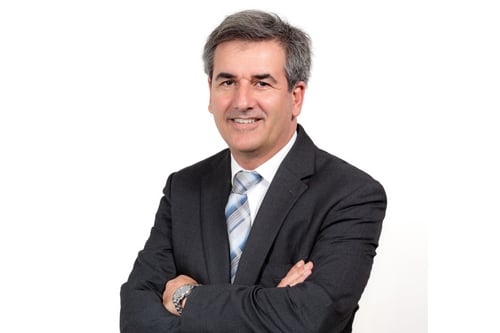

When thinking of risk management experts, one might frequently associate them with large corporations or insurance companies. But these experts had to begin somewhere, and someone had to teach them.
Corporate Risk and Insurance spoke with Dr Simon Grima (pictured), senior lecturer and head of the insurance department at the University of Malta, on how the academe teaches risk management and insurance, as well as several issues confronting the industry.
According to Grima, the University of Malta currently offers a bachelor of commerce degree specialising in insurance, as well as master’s and doctorate degrees in insurance and risk management. The programmes teach the main aspects of insurance such as actuarial science, risk management, underwriting, claims management, and reinsurance. They also tackle contemporary issues such as regulations and compliance, cyber risk, insurtech, and business continuity.
“As an insurance and risk management professional, one’s life will be far from boring and the type of work that one can do is extremely varied,” Grima said. “The goal is to prepare professionals for the risk and insurance industry in both the private and public sectors, by offering insights into today’s challenging and complex world, by formal education, such as quality teaching aimed at developing quality graduates who provide tangible contributions to the organisations that employ them, as well as informal education such as internships, field trips, and simulation games.”
Grima stressed the importance of informal education in preparing students of insurance and risk management for the real world, which is fraught with risks.
“Perhaps the most meaningful aspect of the education process is the opportunity to apply knowledge learned in the classroom to real-world situations,” he said. “This is one of the primary objectives of internships, which afford students the opportunity to work for a risk/insurance organization where the student is exposed to real-world business activities, projects, and challenges.”
“Student interns are able to gain professional experience, make valuable network connections, and usually receive wages for their effort – all while cementing and enhancing their understanding of the concepts they first learned in the classroom,” Grima continued. “In fact, many internships ultimately lead to permanent employment offers upon graduation. Because of the incredible value that an internship experience provides, [the University of Malta program] also promotes an internship as part of the degree requirements.”
Grima believes that risk management students and professionals must learn to be proactive. However, the educational system may not have done enough to equip them with this quality.
“My belief is that Malta’s largest risk is the fact that the education system has, for the past decades, prepared professionals that are normally reactive in nature,” he said. “Only in the last few years has it started to prepare students for the fast-evolving world. We need to be proactive and be able to understand our risks and ensure continuity before it is too late.”
One problem that he cited was rapid population growth in Malta due to immigration, both legal and illegal. He also posed several questions that risk managers need to take into consideration.
“The country is fast becoming a small cosmopolitan city,” he said. “However, is the infrastructure able to take this on and are our systems prepared for such changes? How is this affecting our health? What new risks may be around the corner? Is the education system keeping up with the job demand?
“Well, we are seeing our GDP growth mushrooming and have negligible unemployment. All is good, but what is the net effect, considering the risks we might be facing in a few years? Do we wait and see, or should we act proactively?”
Aside from proactivity, the educational system must also build a culture of ethics and moral standards.
“We have seen and we will see more cyberattacks, just in the same way as we see other types of blue-collar and white-collar crimes,” Grima said. “As long as the world is not manned with angels, humans will always find ways to determine vulnerabilities, whether physical or logical.
“Therefore, to manage risk, in my opinion, apart from knowledge, ethics and moral standards have to be the base of every educational system and compulsory from an early stage in human development. It is very difficult to change the human culture at a later stage, even if enforced through regulations.”
Simon Grima, PhD is the head of the insurance department at the University of Malta. He has designed and is currently in charge of the undergraduate and master’s degrees in insurance and risk management and a senior lecturer on governance, audit management, risk management, compliance, regulations, investments, and portfolio management. Grima served as the president of the Malta Association of Risk Management (MARM) from 2013 to 2015, and president of the Malta Association of Compliance Officers (MACO) from 2016 and 2018. In 2017, he was recognised as an outstanding reviewer for the Journal of Financial Regulation and Compliance by the Emerald Literati Awards.
